America's 'cataclysmic' drop in college enrollment
"The slide in the college-going rate since 2018 is the steepest on record"

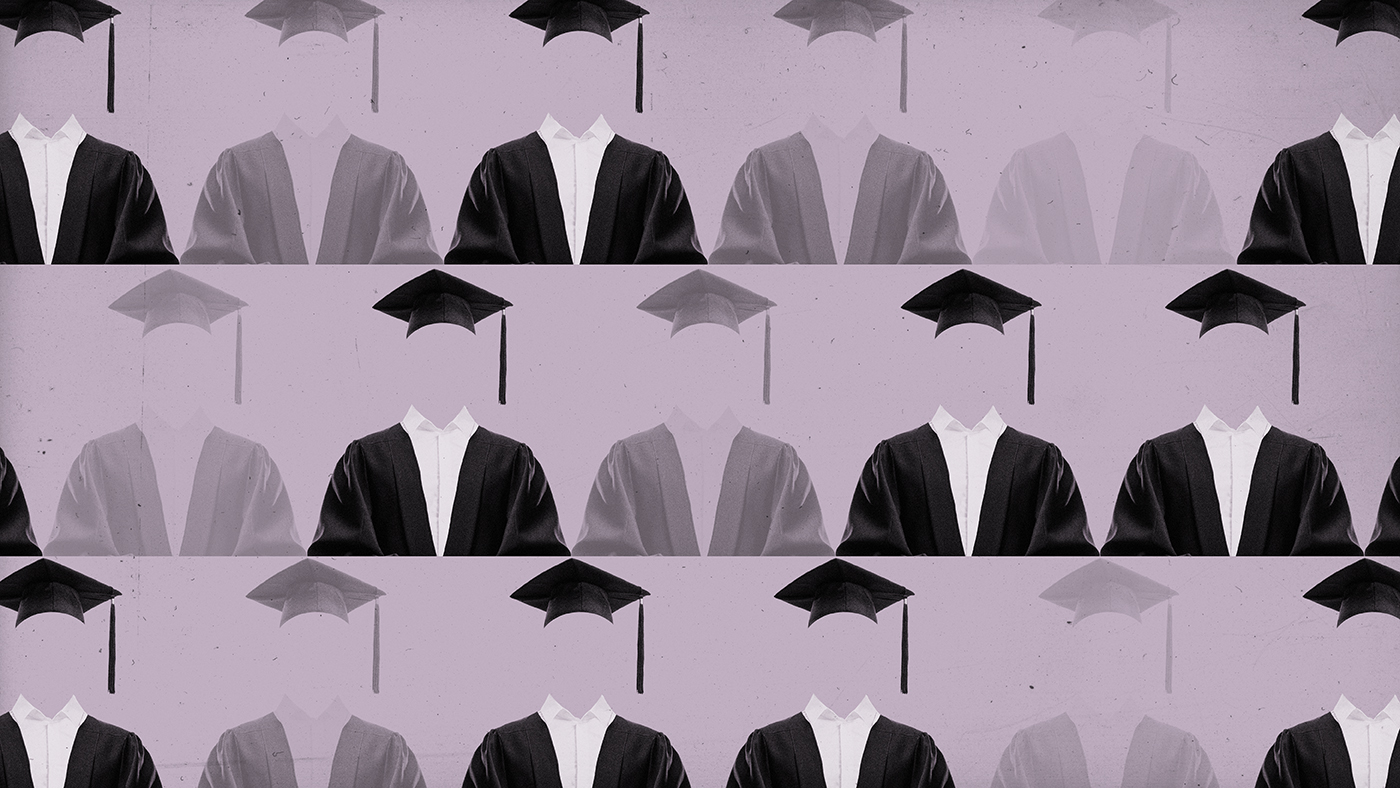
A free daily email with the biggest news stories of the day – and the best features from TheWeek.com
You are now subscribed
Your newsletter sign-up was successful
A growing number of American high schoolers are taking a look at college — and taking a pass.
College enrollment for recent high school graduates rose for decades, peaking at 70.1 percent in 2009, according to the U.S. Bureau of Labor Statistics, before fluctuating for a decade — and plummeting 8 percent from 2019 to 2022, The Associated Press reports. "The slide in the college-going rate since 2018 is the steepest on record," especially for men.
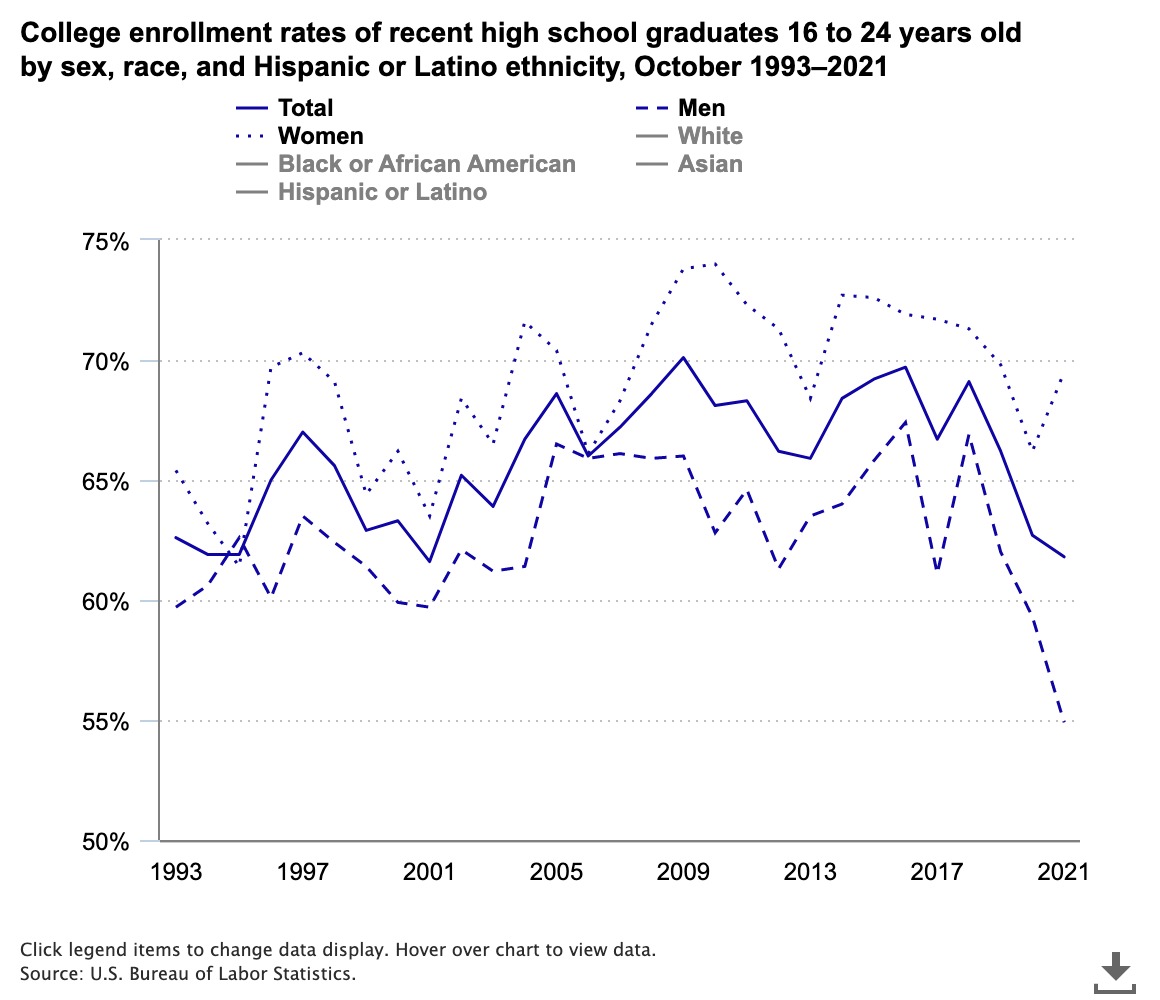
"With the exception of wartime, the United States has never been through a period of declining educational attainment like this," and "it is literally cataclysmic," Michael Hicks, director of the Center for Business and Economic Research at Ball State University's Miller College of Business, told The Hechinger Report at the start of the 2022-23 school year. "It's quite a dangerous proposition for the strength of our national economy," Zack Mabel, a Georgetown researcher, tells AP.
The Week
Escape your echo chamber. Get the facts behind the news, plus analysis from multiple perspectives.

Sign up for The Week's Free Newsletters
From our morning news briefing to a weekly Good News Newsletter, get the best of The Week delivered directly to your inbox.
From our morning news briefing to a weekly Good News Newsletter, get the best of The Week delivered directly to your inbox.
What are the commentators saying?
It's pretty clear the COVID-19 pandemic "reversed decades of progress" in rising college enrollment numbers, AP reports. "Rates fell even as the nation's population of high school graduates grew, and despite economic upheaval, which typically drives more people into higher education."
"The pandemic certainly made things worse," but the downturn in college enrollment "took hold well before it started," Jon Marcus writes at The Hechinger Report. "Focus groups and public opinion surveys point to other, less easily solved reasons," including "widespread and fast-growing skepticism about the value of a degree, impatience with the time it takes to get one, and costs that have finally exceeded many people's ability or willingness to pay."
Colleges "continue to advertise prices that few consumers actually pay but that discourage many from applying," Marcus reports, and "more than 4 in 10 bachelor's degree holders under 45 don't agree that the benefits of their educations exceeded the costs, according to a survey by the Federal Reserve." Add in the average $31,000 in student debt owed by today's graduates — a 317 percent rise since 1971, adjusted for inflation — and the student loans many high schoolers' parents are still paying back, he adds, and "that adds up to a lot of bad reviews passed down to younger siblings and classmates, for whom family and friends are the most trustworthy sources about whether to go to college."
"We are heading into a world where a flat screen TV that covers your entire wall costs $100, and a four year college degree costs $1 million, and nobody has anything even resembling a proposal on how to systemically fix this," Silicon Valley investor Marc Andreessen wrote in a recent Substack post.
A free daily email with the biggest news stories of the day – and the best features from TheWeek.com
Along with the "perception that cost is out of control," "anti-elitism, anti-institutionalism" has fed a sharp drop in Americans' faith in higher education from 2015 to 2019, Gallup's Stephanie Marken says.
At the same time, "many jobs that previously required a college degree can now be filled by people with vocational training or apprenticeships," Matthew Lynch writes at The Edvocate. And "there is a growing recognition that college is not the right path for everyone. Some students may have other priorities or interests that require them to pursue other paths, such as starting their own business or pursuing a career in the arts. Others simply may not be a good fit for the academic rigor and structure of college and may thrive better outside of the classroom."
What's next?
Dropping enrollment is bad for colleges, but the U.S. economy could ultimately take a hit, too, AP reports. "Fewer college graduates could worsen labor shortages in fields from health care to information technology."
Having a college degree also leads to better economic outcomes for individuals, including more job resilience when the economy turns sour. People without a college degree can also expect to earn 75 percent less over their lifetime — or $1 million less — than those with a bachelor's degree, according to Georgetown University's Center on Education and the Workforce. And more than half of "good jobs" call for at least a bachelor's degree.
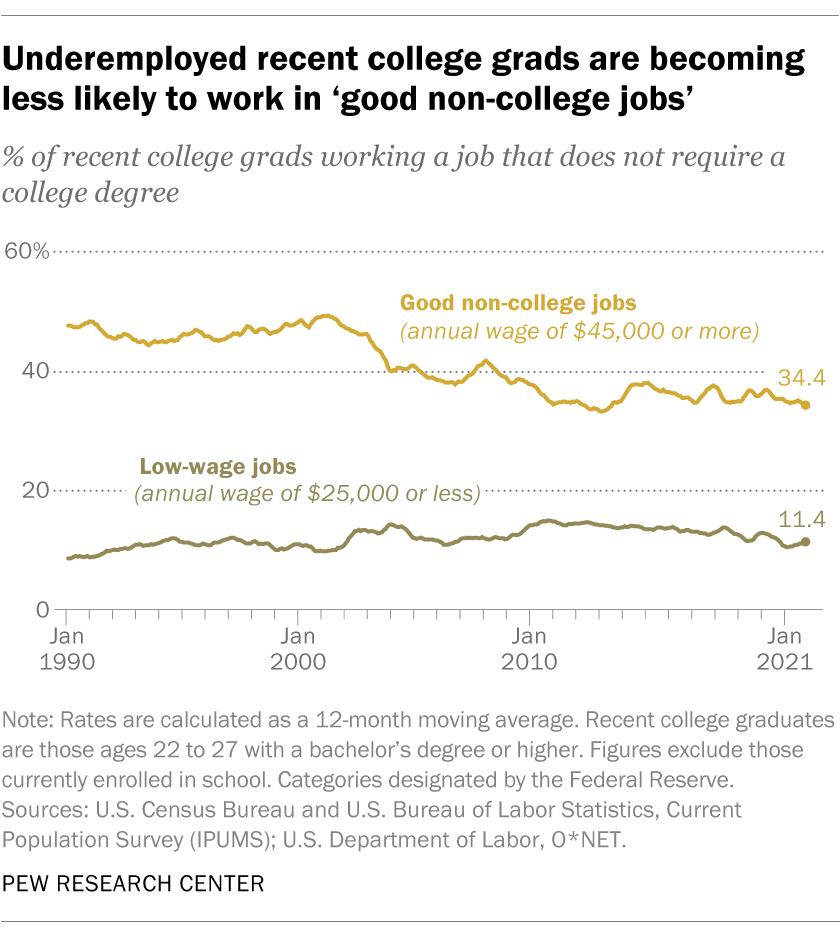
The millions of missing college-educated workers will cost the U.S. $1.2 trillion in lost economic output over the next decade, the center-right American Action Forum estimates. The U.S. was No. 2 among developed nations in 25- to 34-year-olds with bachelor's degrees in 2000, and now it's 16th, The Hechinger Report's Marcus writes, citing a University of Pennsylvania analysis. In that time, the Top 15 developed nations, on average, have increased bachelor's degree attainment by 177 percent.
On the other hand, the U.S. hasn't been sliding backwards. There were 21.3 million more Americans with bachelor's degrees in 2021 than in 2001, according to the U.S. Census Bureau, and between 2011 and 2021, the share of people age 25 and older with a bachelor's degree or higher increased by 7.5 percentage points to 37.9 percent, from 30.4 percent.
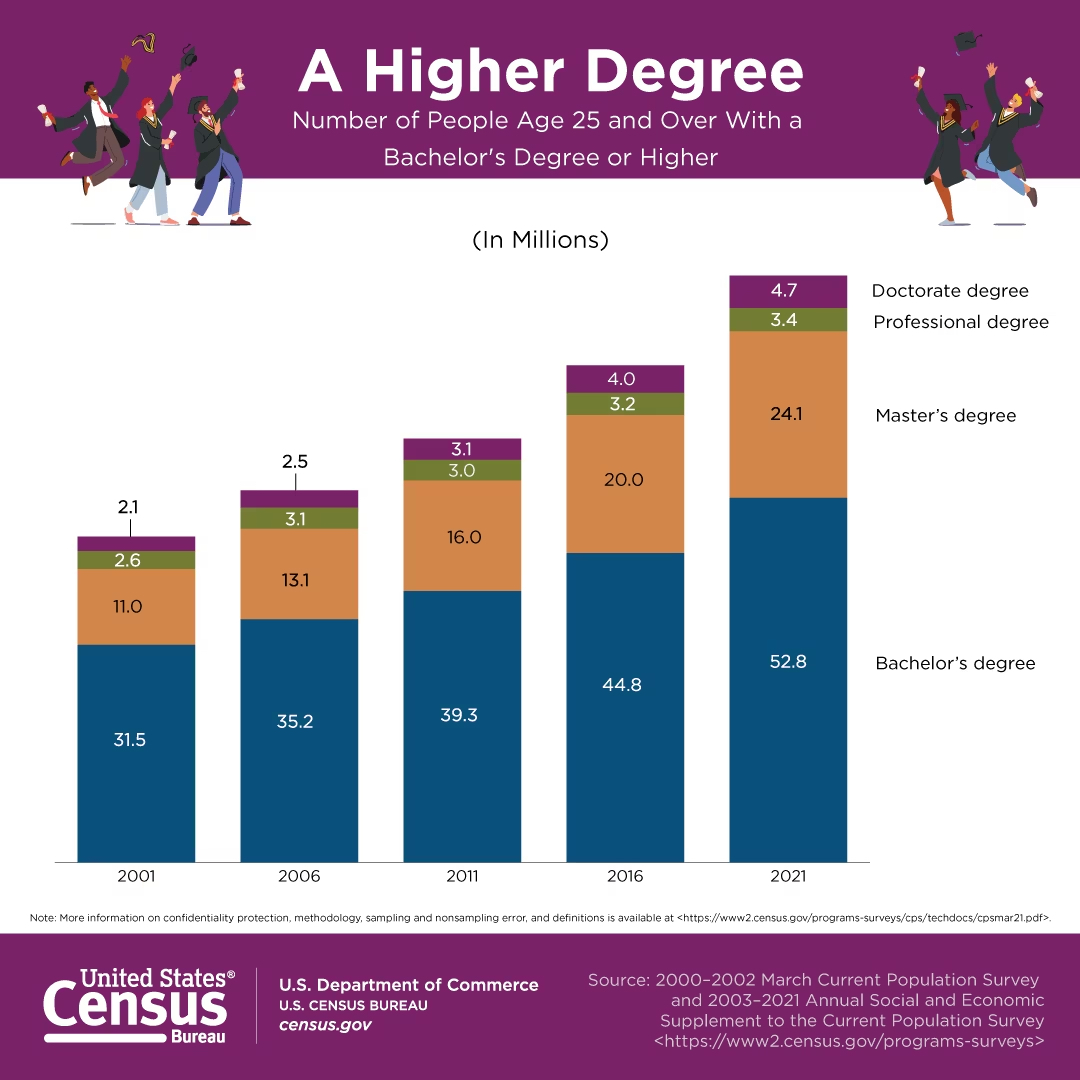
U.S. colleges can "improve their value proposition" by better addressing the needs of today's students, including "reducing the time commitment, cost, and in-person requirements" while "increasing the relevancy of today's curriculum to include a focus on preparing students for a technology-driven, skills-based economy," suggests Daniel Rosensweig, CEO of education technology firm Chegg.
"Educational technology and remote learning are not a panacea — there will always be a place for the in-person pedagogical experience," he adds. But more than a third of today's college students are 25 or older, 24 percent are parents, and 64 percent work full- or part-time jobs, according to the Lumina Foundation, and "we cannot cling to the model of the 18-year-old college student with no other demands on their time" anymore.
Peter has worked as a news and culture writer and editor at The Week since the site's launch in 2008. He covers politics, world affairs, religion and cultural currents. His journalism career began as a copy editor at a financial newswire and has included editorial positions at The New York Times Magazine, Facts on File, and Oregon State University.
-
 Political cartoons for February 16
Political cartoons for February 16Cartoons Monday’s political cartoons include President's Day, a valentine from the Epstein files, and more
-
 Regent Hong Kong: a tranquil haven with a prime waterfront spot
Regent Hong Kong: a tranquil haven with a prime waterfront spotThe Week Recommends The trendy hotel recently underwent an extensive two-year revamp
-
 The problem with diagnosing profound autism
The problem with diagnosing profound autismThe Explainer Experts are reconsidering the idea of autism as a spectrum, which could impact diagnoses and policy making for the condition
-
 What's Jeff Bezos' net worth?
What's Jeff Bezos' net worth?In Depth The Amazon tycoon and third richest person in the world made his fortune pioneering online retail
-
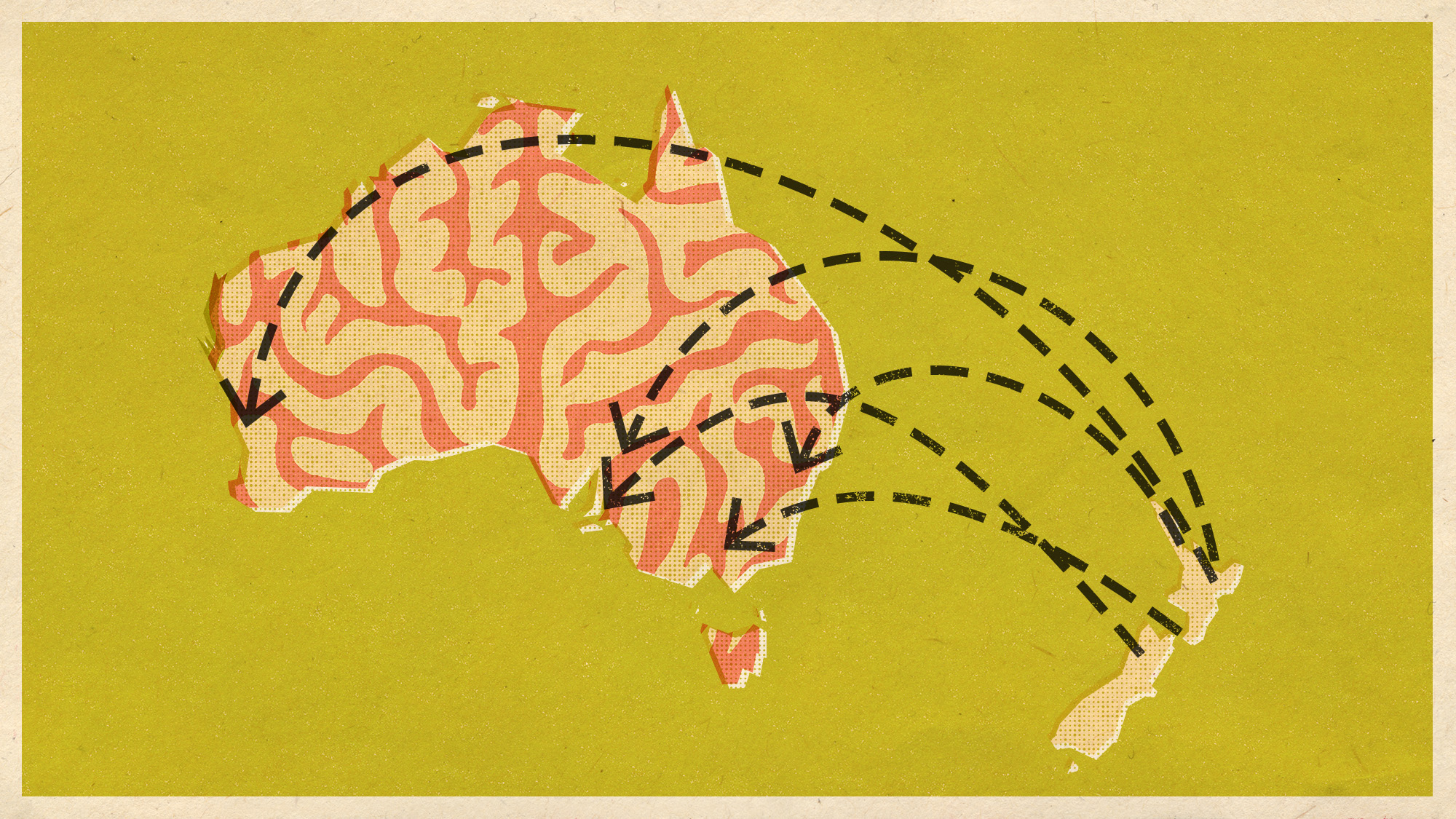 'Brain drain' fear as record numbers leave New Zealand
'Brain drain' fear as record numbers leave New ZealandUnder The Radar Neighbouring Australia is luring young workers with prospect of better jobs
-
 Ghost kitchens are pulling a disappearing act
Ghost kitchens are pulling a disappearing actunder the radar The delivery-only trend is failing to live up to the hype built up during the pandemic
-
 The birth of the weekend: how workers won two days off
The birth of the weekend: how workers won two days offThe Explainer Since the 1960s, there has been talk of a four-day-week, and post-pandemic work patterns have strengthened those calls
-
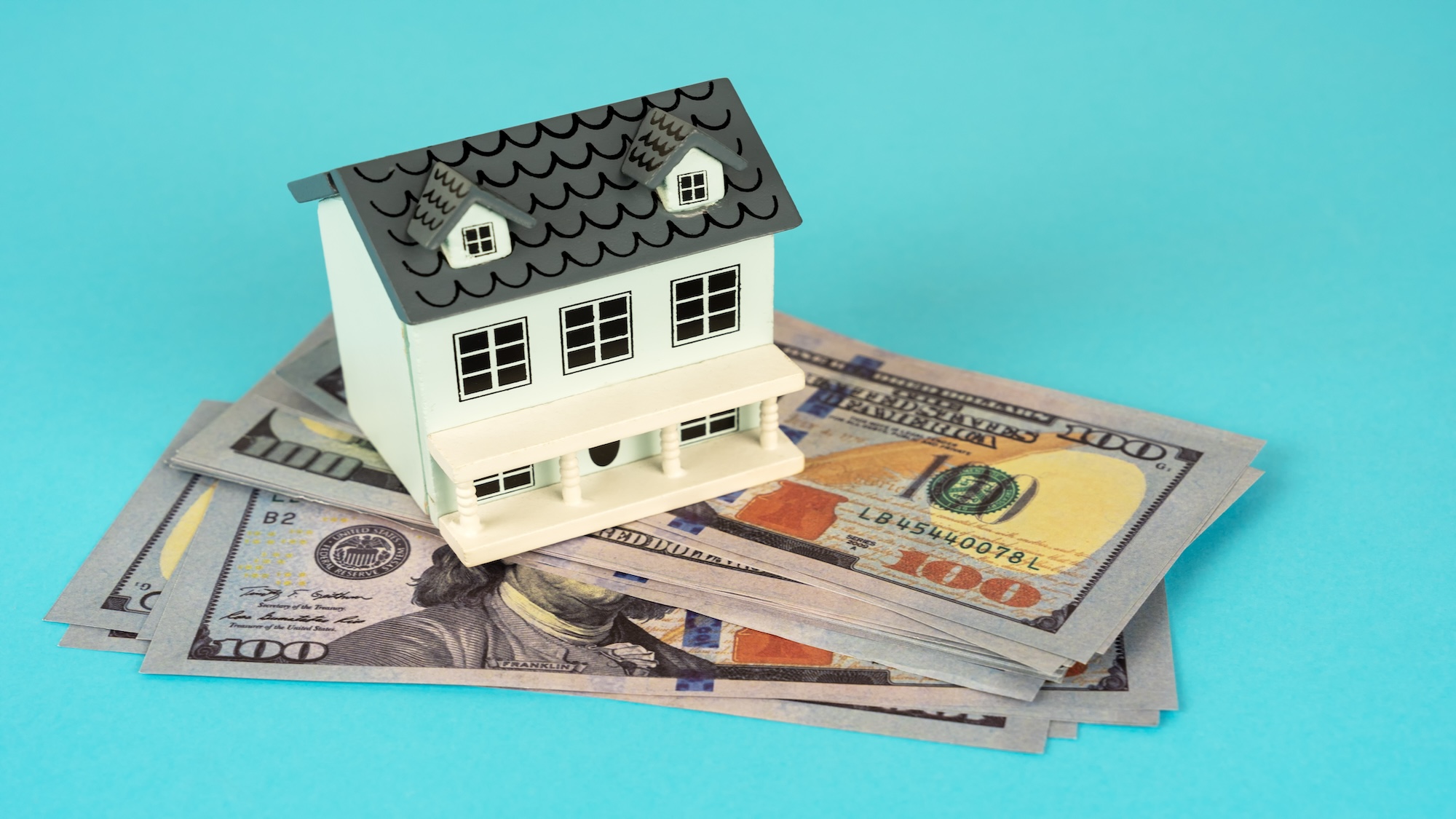 Why household wealth took off during the pandemic
Why household wealth took off during the pandemicUnder The Radar The Covid-19 pandemic caused a lot of pain and hardship, but new research shows it also left most Americans wealthier
-
 Empty office buildings are blank slates to improve cities
Empty office buildings are blank slates to improve citiesSpeed Read The pandemic kept people home and now city buildings are vacant
-
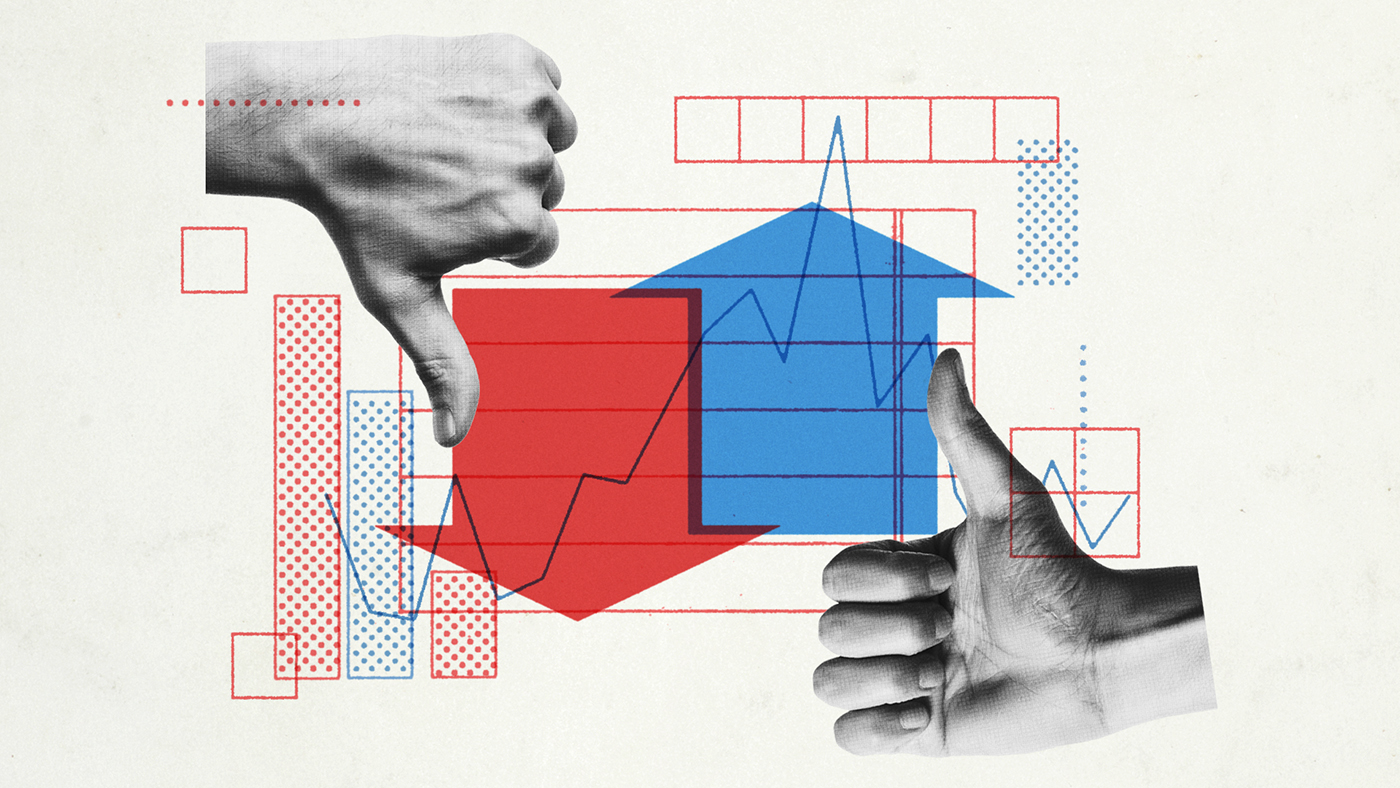 Inflation vs. deflation: which is worse for national economies?
Inflation vs. deflation: which is worse for national economies?Today's Big Question Lower prices may be good news for households but prolonged deflation is ‘terrible for the economy’
-
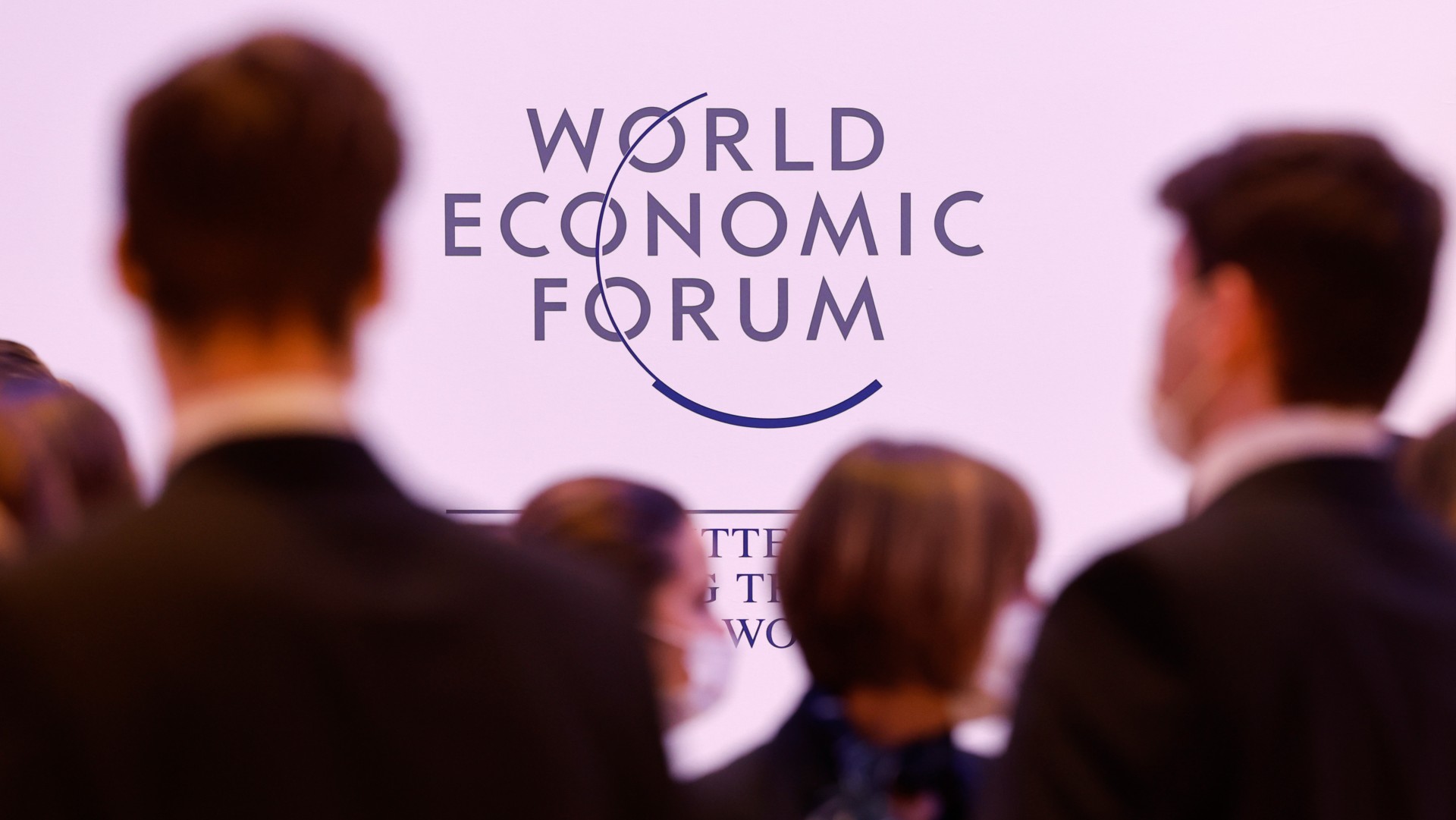 Davos 2023 and the decline of globalisation
Davos 2023 and the decline of globalisationTalking Point Covid and geopolitical tensions usher in ‘new age of self-sufficiency’, leaving World Economic Forum out in the cold
